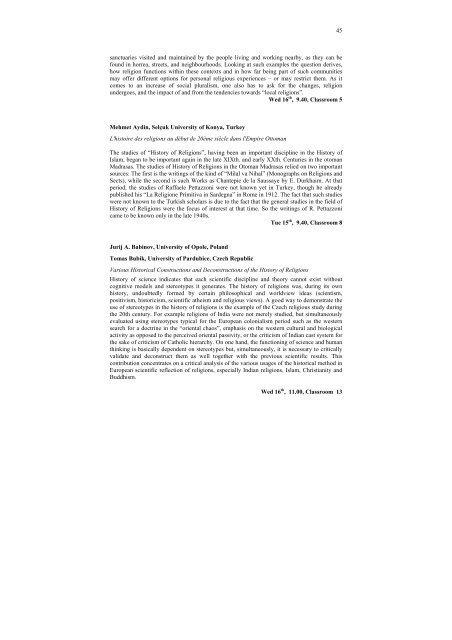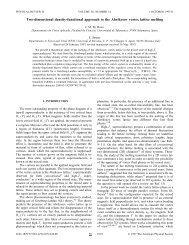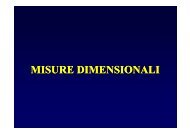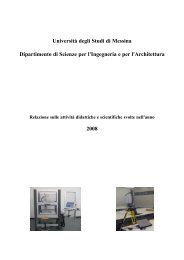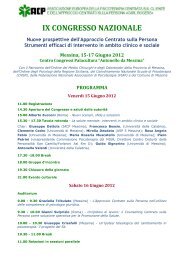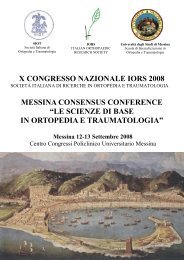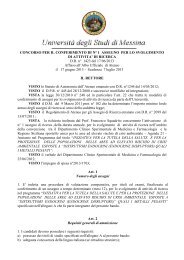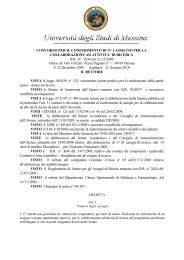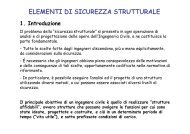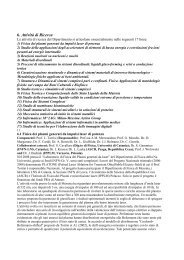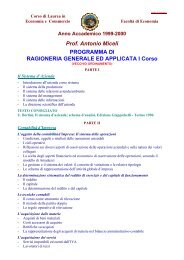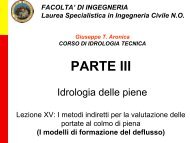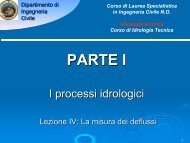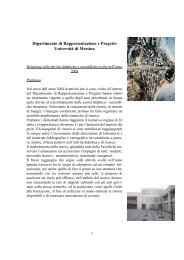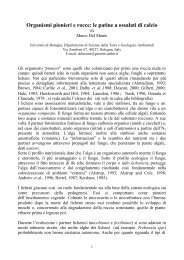PROGRAMME AND ABSTRACTS - Università degli Studi di Messina
PROGRAMME AND ABSTRACTS - Università degli Studi di Messina
PROGRAMME AND ABSTRACTS - Università degli Studi di Messina
You also want an ePaper? Increase the reach of your titles
YUMPU automatically turns print PDFs into web optimized ePapers that Google loves.
sanctuaries visited and maintained by the people living and working nearby, as they can be<br />
found in horrea, streets, and neighbourhoods. Looking at such examples the question derives,<br />
how religion functions within these contexts and in how far being part of such communities<br />
may offer <strong>di</strong>fferent options for personal religious experiences – or may restrict them. As it<br />
comes to an increase of social pluralism, one also has to ask for the changes, religion<br />
undergoes, and the impact of and from the tendencies towards “local religions”.<br />
Wed 16 th , 9.40, Classroom 5<br />
Mehmet Ay<strong>di</strong>n, Selçuk University of Konya, Turkey<br />
L'histoire des religions au début de 20ème siècle dans l'Empire Ottoman<br />
The stu<strong>di</strong>es of “History of Religions”, having been an important <strong>di</strong>scipline in the History of<br />
Islam, began to be important again in the late XIXth. and early XXth. Centuries in the otoman<br />
Madrasas. The stu<strong>di</strong>es of History of Religions in the Otoman Madrasas relied on two important<br />
sources: The first is the writings of the kind of “Milal va Nihal” (Monographs on Religions and<br />
Sects), while the second is such Works as Chantepie de la Saussaye by E. Durkhaim. At that<br />
period, the stu<strong>di</strong>es of Raffaele Pettazzoni were not known yet in Turkey, though he already<br />
published his “La Religione Primitiva in Sardegna” in Rome in 1912. The fact that such stu<strong>di</strong>es<br />
were not known to the Turkish scholars is due to the fact that the general stu<strong>di</strong>es in the field of<br />
History of Religions were the focus of interest at that time. So the writings of R. Pettazzoni<br />
came to be known only in the late 1940s.<br />
Tue 15 th , 9.40, Classroom 8<br />
Jurij A. Babinov, University of Opole, Poland<br />
Tomas Bubík, University of Pardubice, Czech Republic<br />
Various Historical Constructions and Deconstructions of the History of Religions<br />
History of science in<strong>di</strong>cates that each scientific <strong>di</strong>scipline and theory cannot exist without<br />
cognitive models and stereotypes it generates. The history of religions was, during its own<br />
history, undoubtedly formed by certain philosophical and worldview ideas (scientism,<br />
positivism, historicism, scientific atheism and religious views). A good way to demonstrate the<br />
use of stereotypes in the history of religions is the example of the Czech religious study during<br />
the 20th century. For example religions of In<strong>di</strong>a were not merely stu<strong>di</strong>ed, but simultaneously<br />
evaluated using stereotypes typical for the European colonialism period such as the western<br />
search for a doctrine in the “oriental chaos”, emphasis on the western cultural and biological<br />
activity as opposed to the perceived oriental passivity, or the criticism of In<strong>di</strong>an cast system for<br />
the sake of criticism of Catholic hierarchy. On one hand, the functioning of science and human<br />
thinking is basically dependent on stereotypes but, simultaneously, it is necessary to critically<br />
validate and deconstruct them as well together with the previous scientific results. This<br />
contribution concentrates on a critical analysis of the various usages of the historical method in<br />
European scientific reflection of religions, especially In<strong>di</strong>an religions, Islam, Christianity and<br />
Buddhism.<br />
45<br />
Wed 16 th , 11.00, Classroom 13


